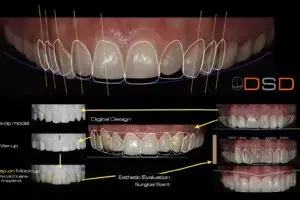Achieving a brighter, more radiant smile through teeth whitening is a popular choice for many. But how long do the results actually last? In this blog, we’ll explore the longevity of teeth whitening treatments, factors that influence their duration, and tips for maintaining that dazzling smile.
Maintaining Your White Smile

Here are some tips to help your teeth whitening results last longer:
- Schedule regular dental cleanings: Professional cleaning removes stubborn stains and helps maintain a brighter smile.
- Use a whitening toothpaste: Choose a toothpaste containing whitening ingredients to maintain the results.
- Limit pigmented foods and drinks: Reduce your intake of coffee, tea, red wine, and other staining foods and beverages.
- Avoid smoking and tobacco use: These habits significantly shorten the lifespan of whitening results.
- Touch-up your whitening treatment: Use at-home whitening kits or visit your dentist for touch-up treatments every few months.
Factors Affecting the Duration of Teeth Whitening
Here are several factors that can influence the longevity of your teeth whitening results:
Type of Whitening Treatment
Professional In-Office Whitening: This method delivers the most dramatic and long-lasting results, typically lasting 1-3 years with proper care. It involves a dental professional applying a high-concentration bleaching agent to your teeth, often activated by a special light. The process is quick and effective, usually completed in one visit, and can significantly brighten your smile.
At-Home Whitening Systems: These include trays, strips, gels, and toothpastes. While less expensive than professional treatments, they offer more subtle whitening results and usually last 3-6 months. At-home systems generally use lower concentrations of bleaching agents and require consistent application over a period of days or weeks to achieve desired results.
Over-the-Counter Products: These are the least potent and deliver the shortest-lived results, often fading within 1-2 months. Over-the-counter options include whitening toothpastes and mouthwashes, which contain mild abrasives and low concentrations of bleaching agents. They are convenient and affordable but may not provide the same level of whitening as professional or at-home systems.
2. Individual Habits:

- Smoking and Tobacco Use: These habits stain teeth and significantly shorten the whitening effect.
- Diet: Consuming heavily pigmented foods and beverages like coffee, tea, and red wine can contribute to staining and faster fading.
- Oral Hygiene: Good oral hygiene habits, including brushing twice daily and flossing, help prevent stains and prolong whitening results.
3. Initial Tooth Shade:
Teeth with naturally darker shades may require more frequent touch-ups to maintain the desired whiteness.
4. Underlying Dental Issues:
Dental conditions like enamel erosion and tooth sensitivity can impact the whitening process and its longevity.
5. Type of Whitening Agent:
The type of bleaching agent used, such as hydrogen peroxide or carbamide peroxide, can affect the intensity and duration of the whitening effect.
Additional Considerations.
- Australian Dental Association (ADA) Recommendations: The ADA recommends consulting a dentist before undergoing any teeth whitening treatment to ensure its suitability and safety.
- Cost of Teeth Whitening: The cost of teeth whitening varies depending on the type of treatment chosen and the dental professional providing the service. In Australia, professional in-office whitening can cost anywhere from $500 to $1000, while at-home kits can range from $150 to $200.
- Regulations: The ADA has established guidelines for the safe and effective use of teeth whitening products in Australia. Consumers should only purchase and use products that comply with these regulations.
You should read about laser teeth whitening benefits and longevity


